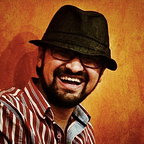Curious Bends
Vandana Shiva, antibiotics in chicken, asteroid hunters and more
1. Why India’s fiercest anti-GM activist has found a big following abroad
Few technologies, not the car, the phone, or even the computer, have been adopted as rapidly and as widely as the products of agricultural biotechnology. The tools of genetic engineering have allowed a good proportion of the current population to survive and prosper. But such statistics (or any scientific argument) does not stop Vandana Shiva from thinking that the root of all evil lies in GM technology. (42 min read)
An investigation of chicken from around Delhi shows that they contain antibiotics beyond the limits setup by international bodies. These antibiotics are used not to treat diseased chicken but to prevent them. However, there are no regulations in India for their use in poultry. This means the amounts used are often excessive, probably contributing to increasing antibiotic resistance. (21 min read)
3. India’s outdated approach to education is hurting students and academia
The University Grants Commission wants to reign in elite institutions, such as the Indian Institute of Science and the Indian Institutes of Technology, by making their courses shorter. This decision, however, isn’t based on any sound research. If such institutions aren’t allowed to experiment with education, then how would you know what works best for Indian students and academics? (5 min read)
+ The author, Vishu Guttal, is an assistant professor at the Indian Institute of Science.
4. India has an asteroid search mission made up of mostly students
“Four years, 260 teams across India, 1200 observations of celestial bodies and 21 discoveries of asteroids. All India Asteroid Search Campaign was started by SPACE, an NGO in India, in 2010 with an aim to increase the love for science, astronomy and scientific research in Indian students. SPACE provides training to students and amateur astronomers to hunt for asteroids.” (2 min read)
5. An interview with Manjul Bhargava, winner of the 2014 Fields Medal
The first Indian-origin mathematician has won the Fields Medal, which is considered to be the Nobel Prize of mathematics. In an interview, he talks about growing up in India, Canada and the US and how his upbringing shaped up his desire to pursue mathematics, tabla and sanskrit. His hope is that Indian youth will take up research in basic science.
Chart of the week
You must have heard that even today half of India’s population lives off agricultural activities. But how true is that? Turns out that estimating how many cultivators and agricultural labourers India has is no easy task. Here’s an attempt by Hindustan Times.
If you found ideas worth spreading, please share this newsletter with your friends and ask them to subscribe here. Have a good week!
